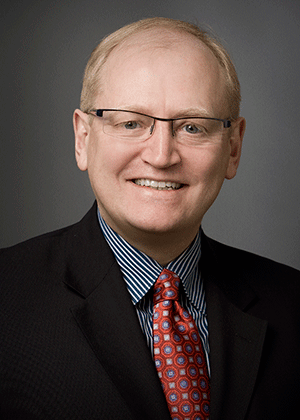Justice Paul Perell has ordered that the person or people who helped a man who crashed the Pride parade last year and hand out anti-gay pamphlets identify themselves, after a class action lawsuit was filed in relation to the incident.

In the ruling in
Hudspeth v. Whatcott, 2017, Perell also said the plaintiffs in a proposed class action lawsuit would have to amend it so those who wanted to take part in it could participate on an opt-in basis.The lawsuit was filed by two gay plaintiffs, George Smitherman, former deputy premier of Ontario, and Christopher Hudspeth, a community activist, after a group of people led by William Whatcott posed as members of the made-up Gay Zombies Cannabis Consumers Association, and attended the 2016 Toronto Pride Parade.
At the parade, the group handed out 3,000 leaflets that “warned of the health risks and moral depravity of sexual conduct engaged in by gay men and encouraged gay men to repent and accept the Christian faith,” said the ruling.
The plaintiffs sought more than $100 million in damages in relation to the incident, based on claims of “civil conspiracy to injure, defamation, and intentional infliction of mental distress,” and was brought on behalf of members of the LGTBTQ2SI (lesbian, gay, transgender, bisexual, transsexual, queer, Two Spirit and intersex) community.
“In the case at bar, the design of [the plaintiff’s] claim for the Marchers, really the LGTBTQ2SI Community, is to act as public prosecutors for a hate crime. However, tort law focuses on providing compensation for the harms suffered by individuals leaving it for the criminal law to respond to the crimes suffered by society including the group that has been victimized,” said Perell, in his ruling, concluding the statement of claim “as a proposed class action does not disclose a reasonable cause of action for civil conspiracy to injure and that this claim also does not satisfy the cause of action criterion for a class proceeding.”
However, Perell said he granted leave to the plaintiffs to deliver a new, amended statement of claim as an opt-in joinder option. In the ruling, Perell also granted a Norwich order — co-defendants will have to identify themselves to the court, and failing that, Whatcott will have to identify them.
Douglas Elliott, who is representing the plaintiffs, says they have received extensive support from the community in relation to the case.
“We’re very pleased with the decision to require Mr. Whatcott to reveal his backers,” he says. “That is obviously the right decision, because what he did is dishonest, and I think the court made the right decision to expose the other people who are involved in this.”
Charles Lugosi, who represented the defendants, said he will be seeking leave to appeal the case.
Justin Safayeni of Stockwoods LLP, who was not involved in the case, said the decision “is an important reminder that it is very difficult to get a class action certified for defamation, unless circumstances suggest that all members of the class have been ‘singled out’ by the allegedly defamatory statements and suffered a personal injury to their individual reputations.”
“Here, for example, the Court concluded was no cause of action that could be brought on behalf of 500 marchers in the parade that were members of the federal and provincial Liberal Party because the statements didn’t single each one of them out. . .,” he said. “As a fundamentally personal cause of action, defamation is typically not well-suited for class actions.”

 In the ruling in Hudspeth v. Whatcott, 2017, Perell also said the plaintiffs in a proposed class action lawsuit would have to amend it so those who wanted to take part in it could participate on an opt-in basis.
In the ruling in Hudspeth v. Whatcott, 2017, Perell also said the plaintiffs in a proposed class action lawsuit would have to amend it so those who wanted to take part in it could participate on an opt-in basis.